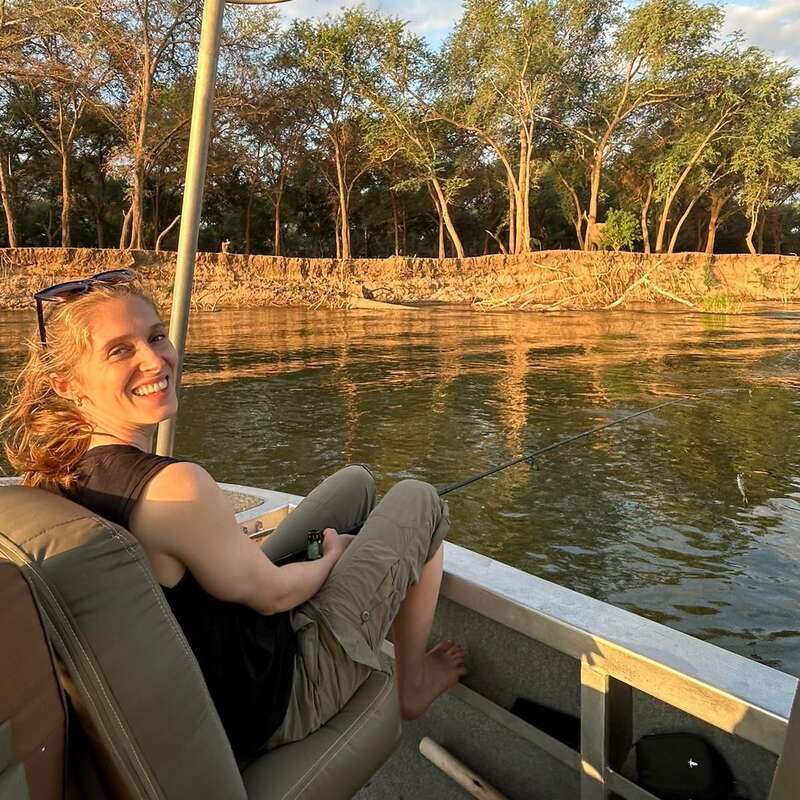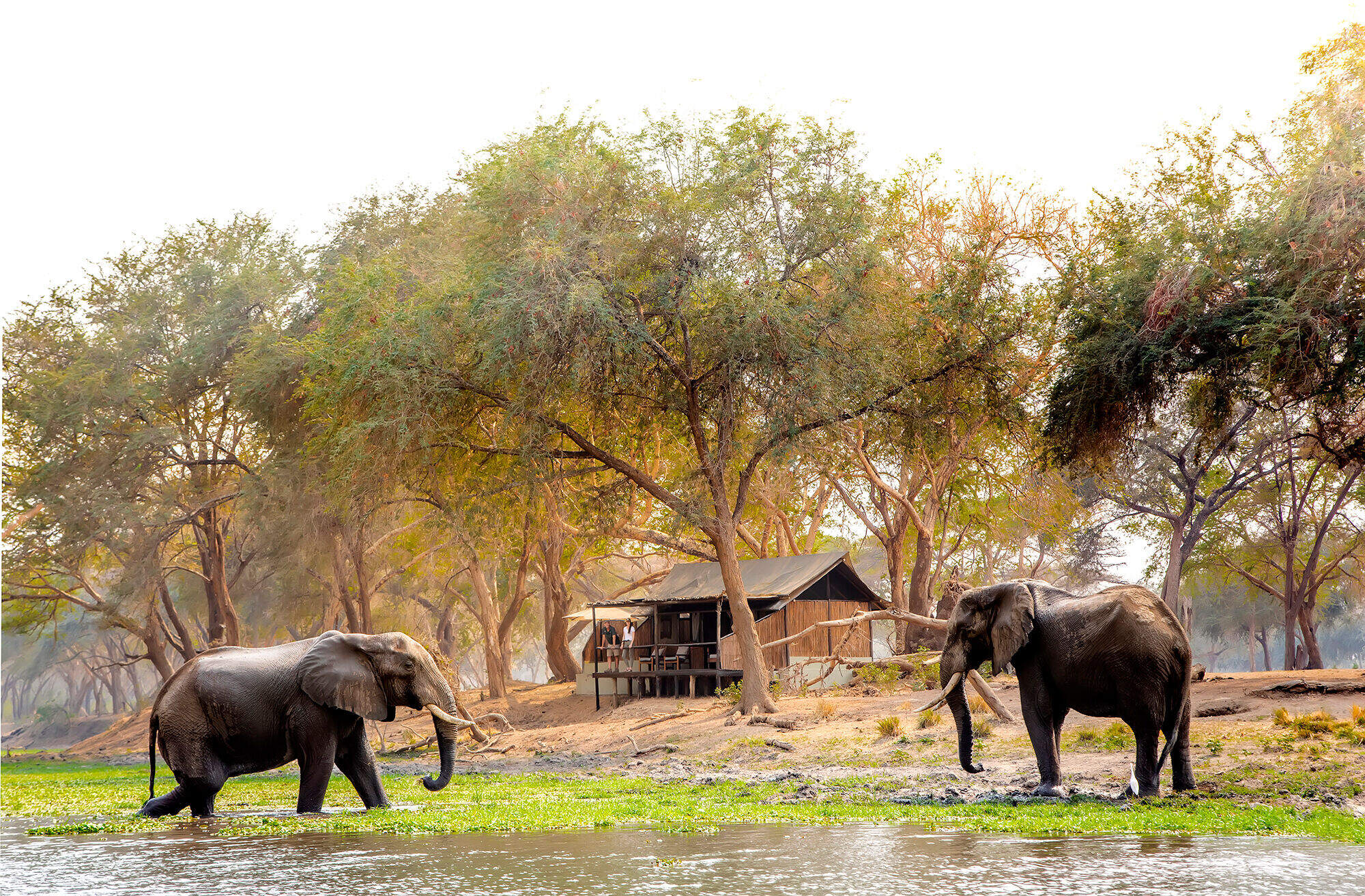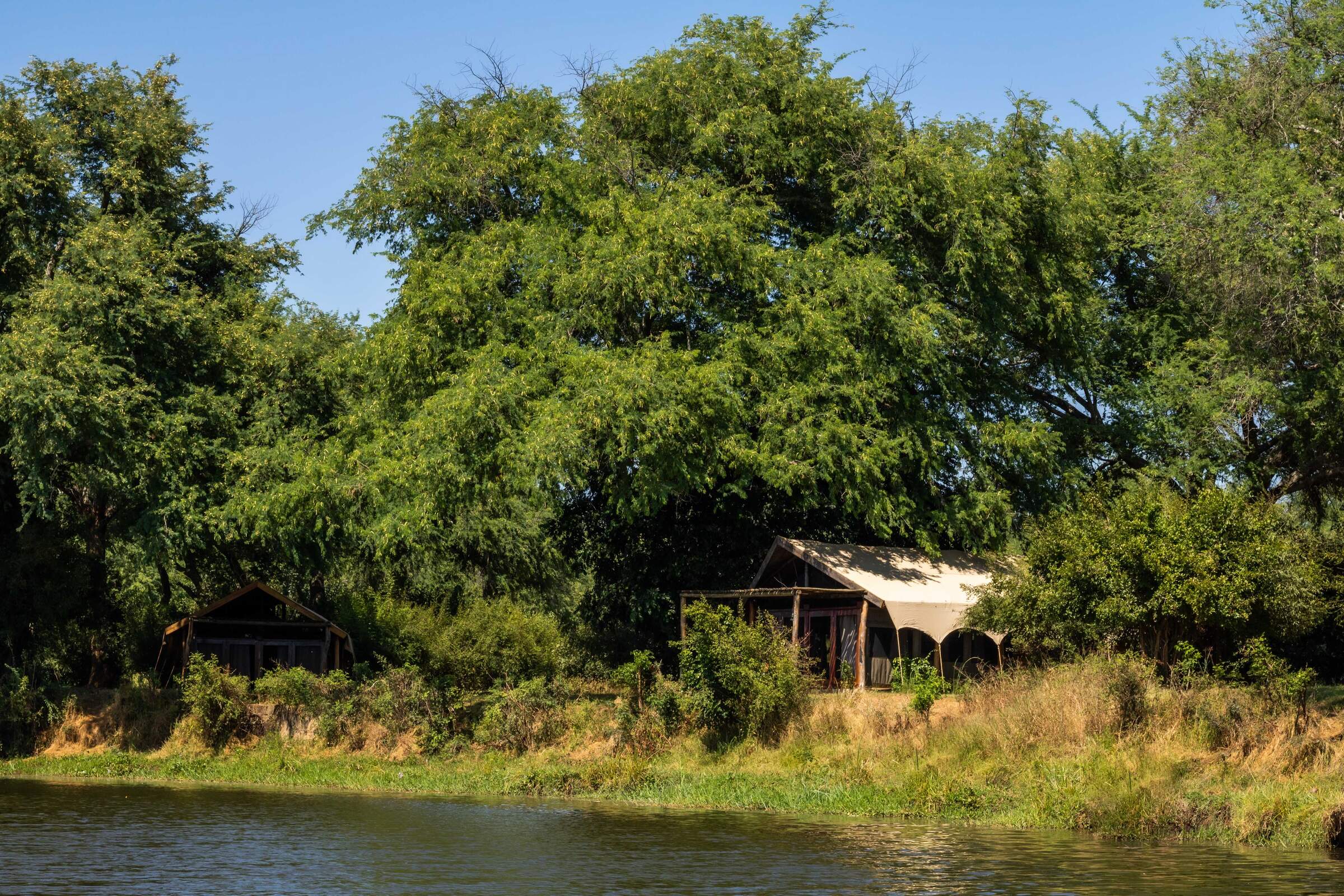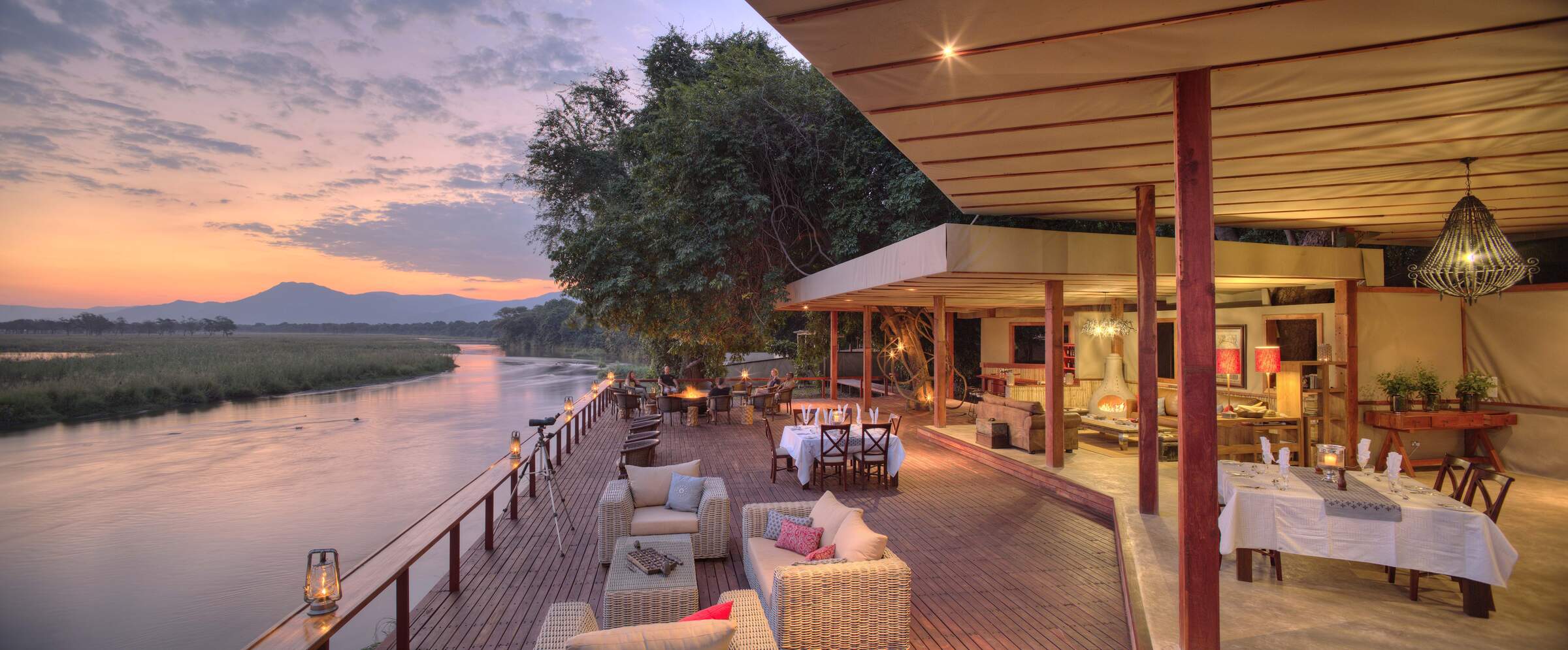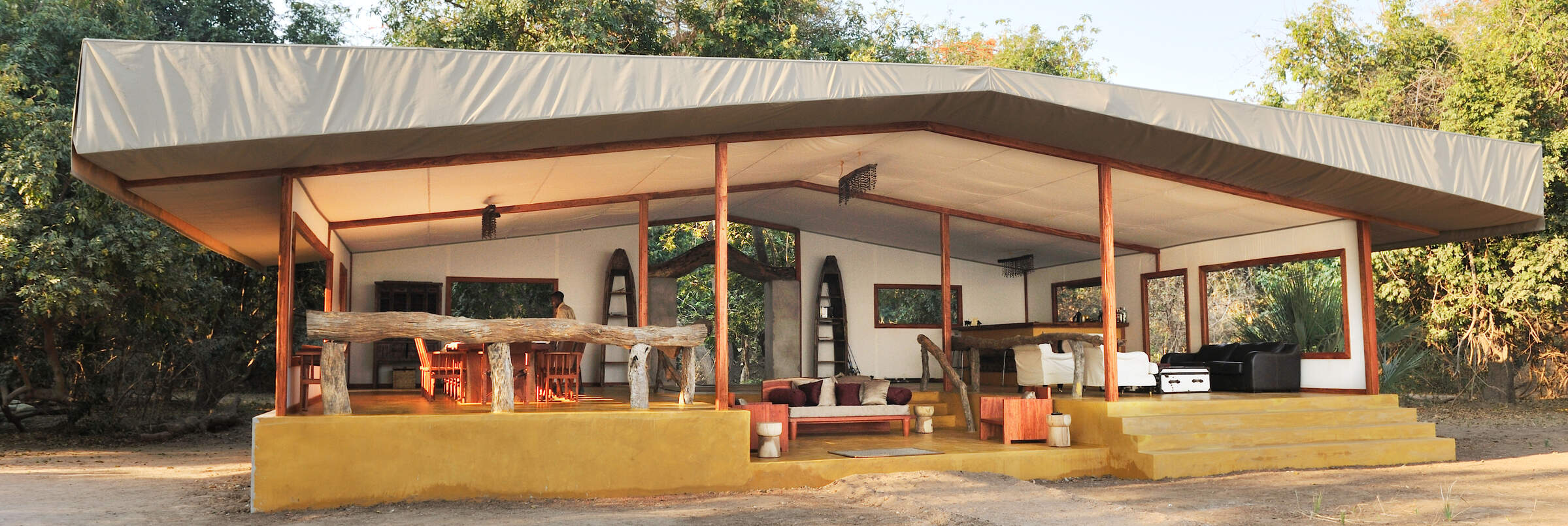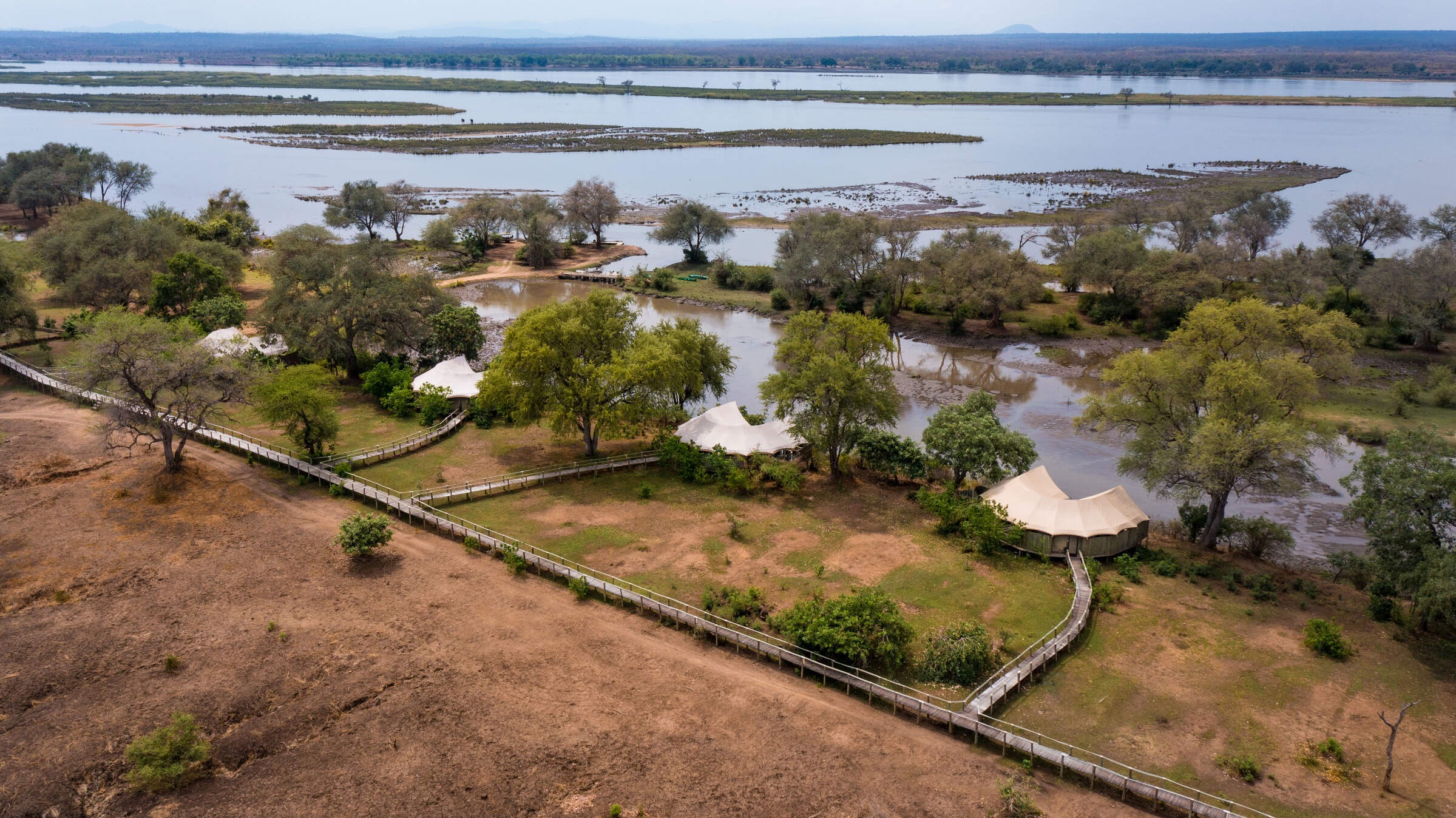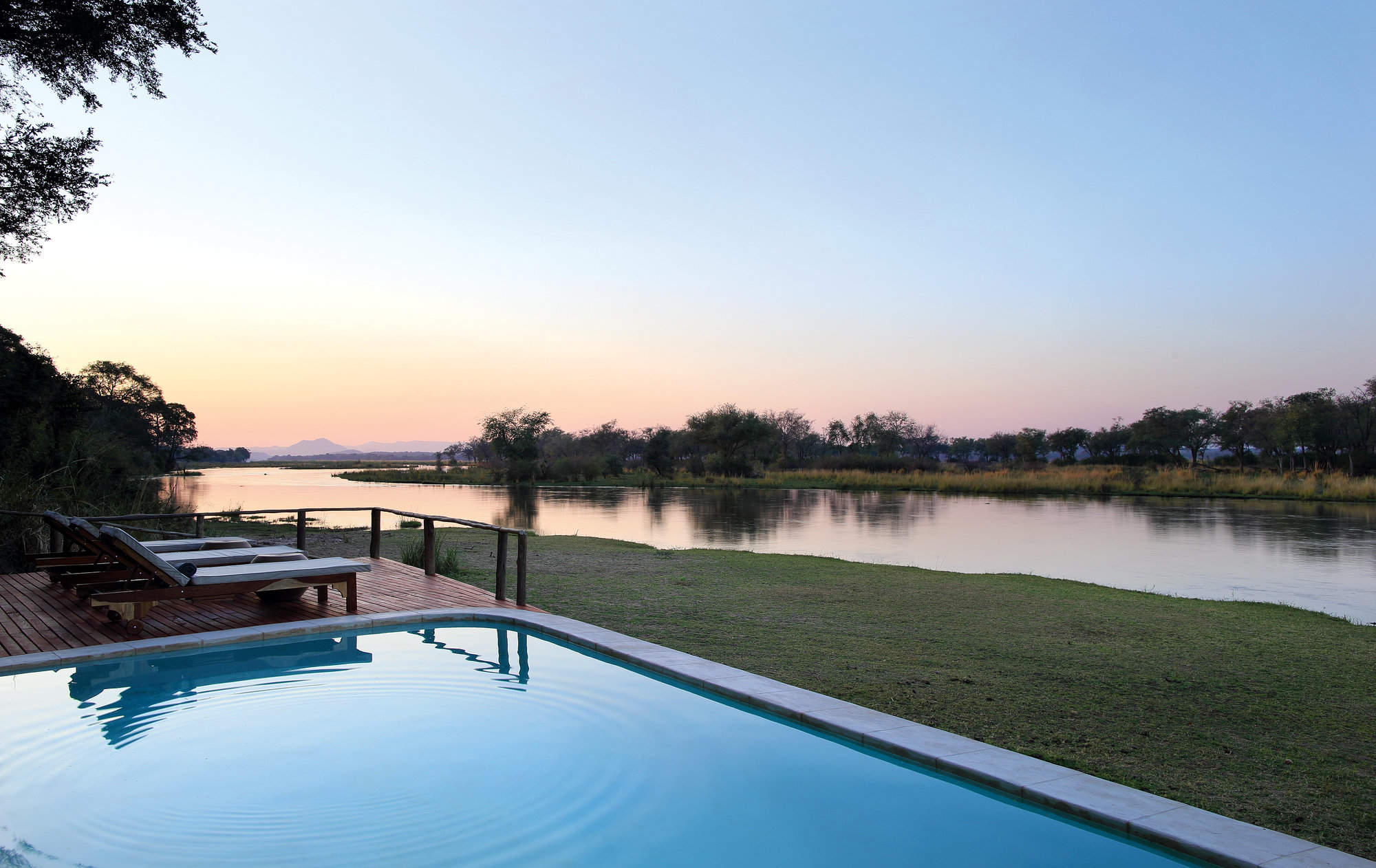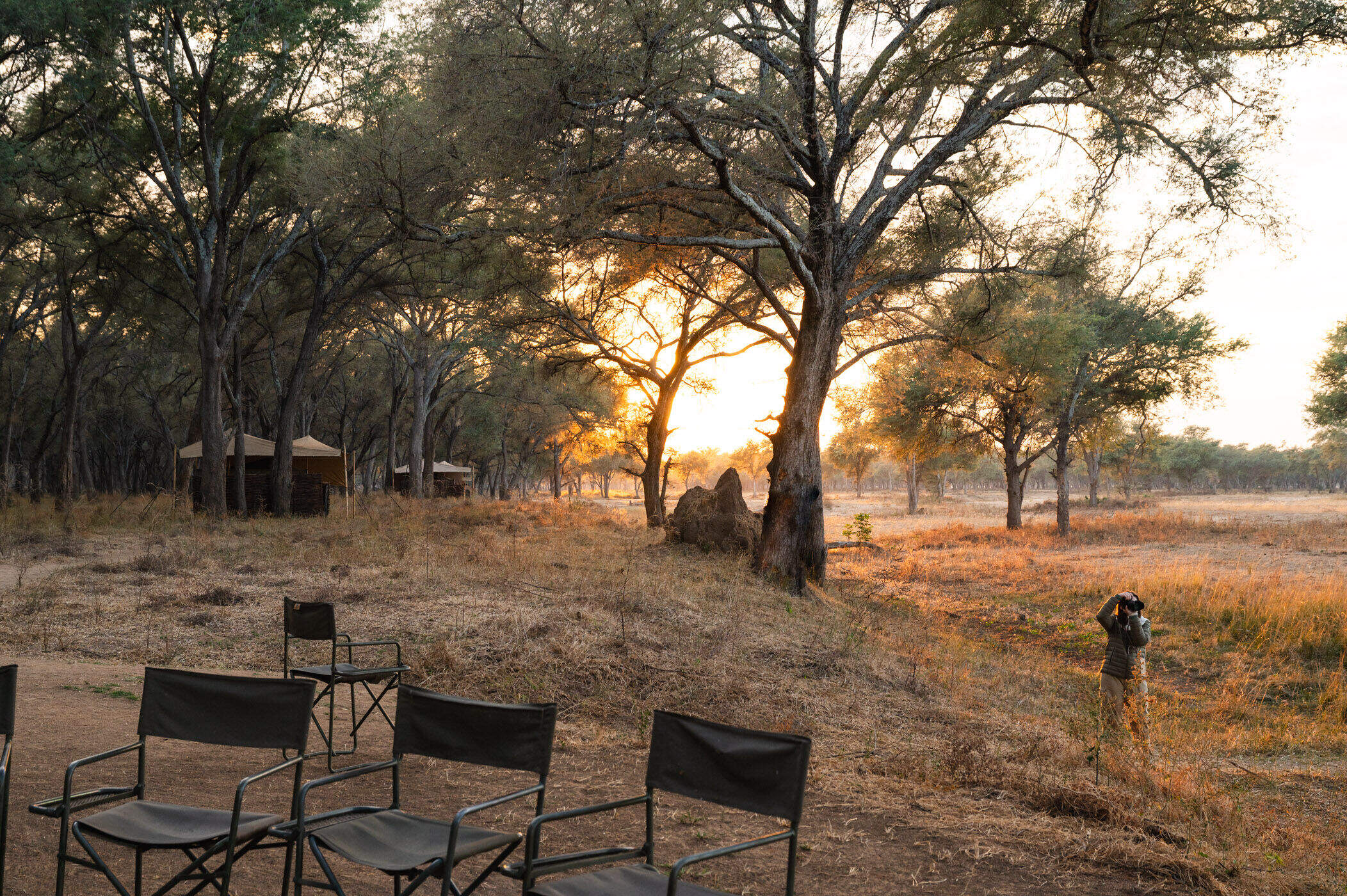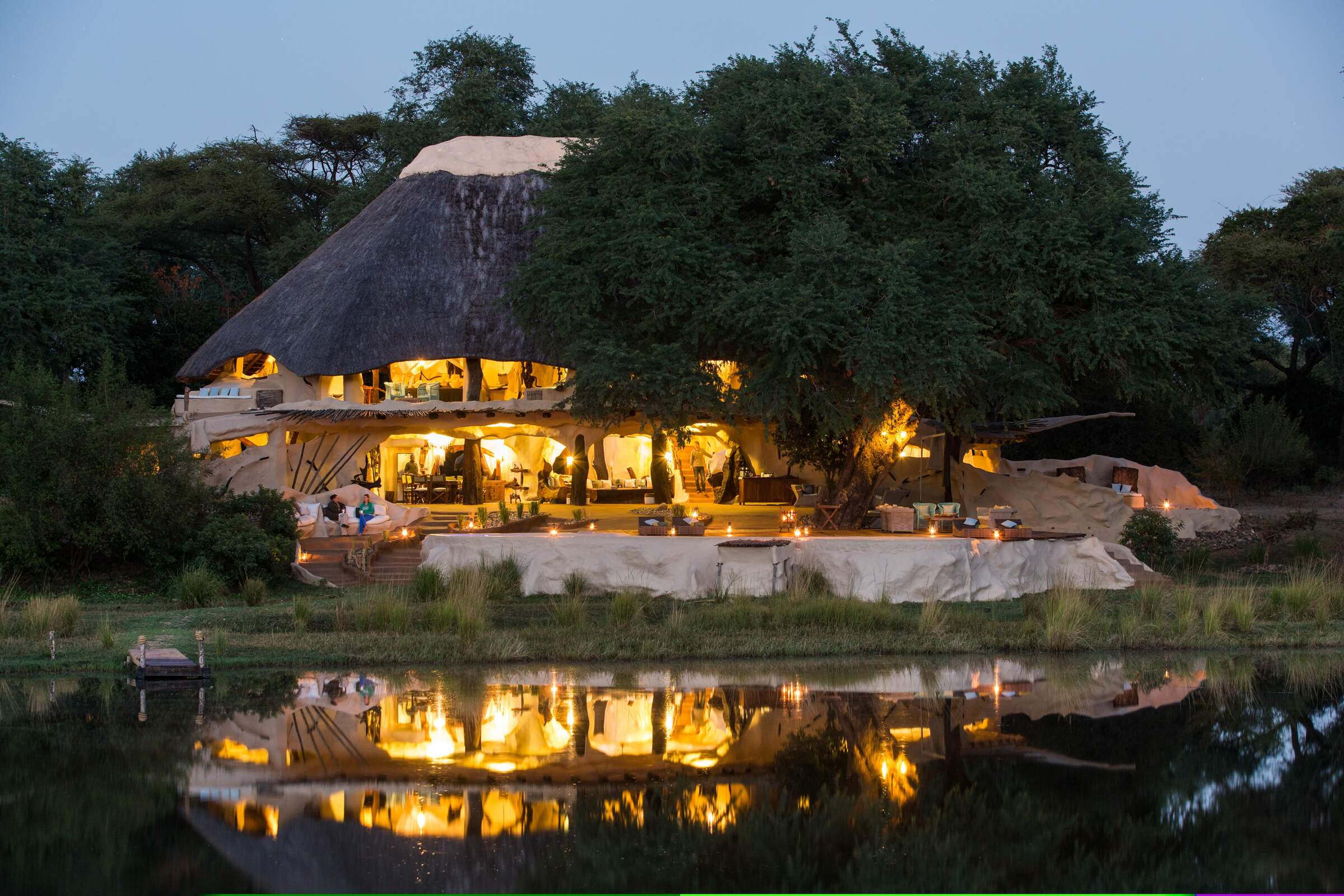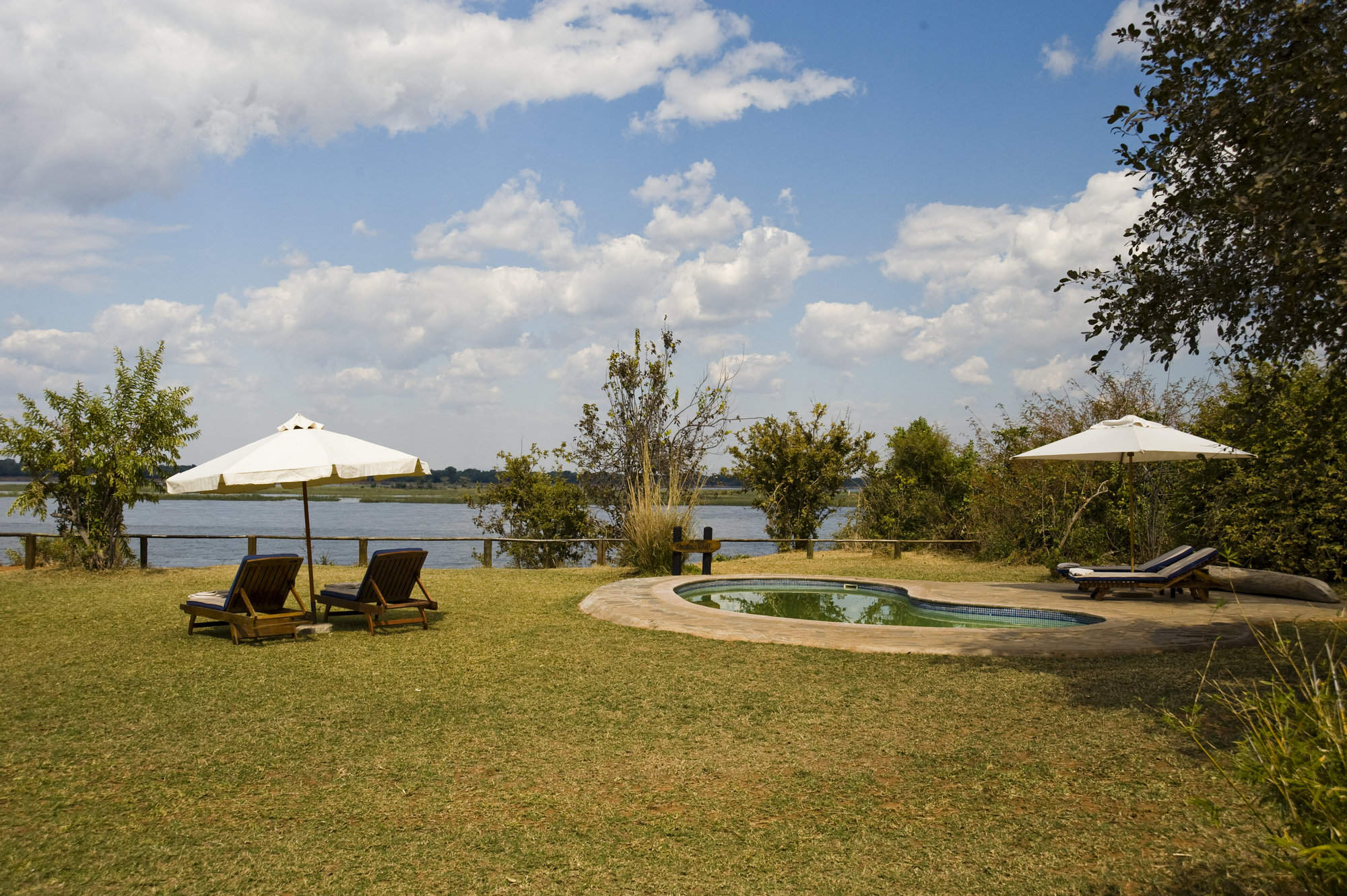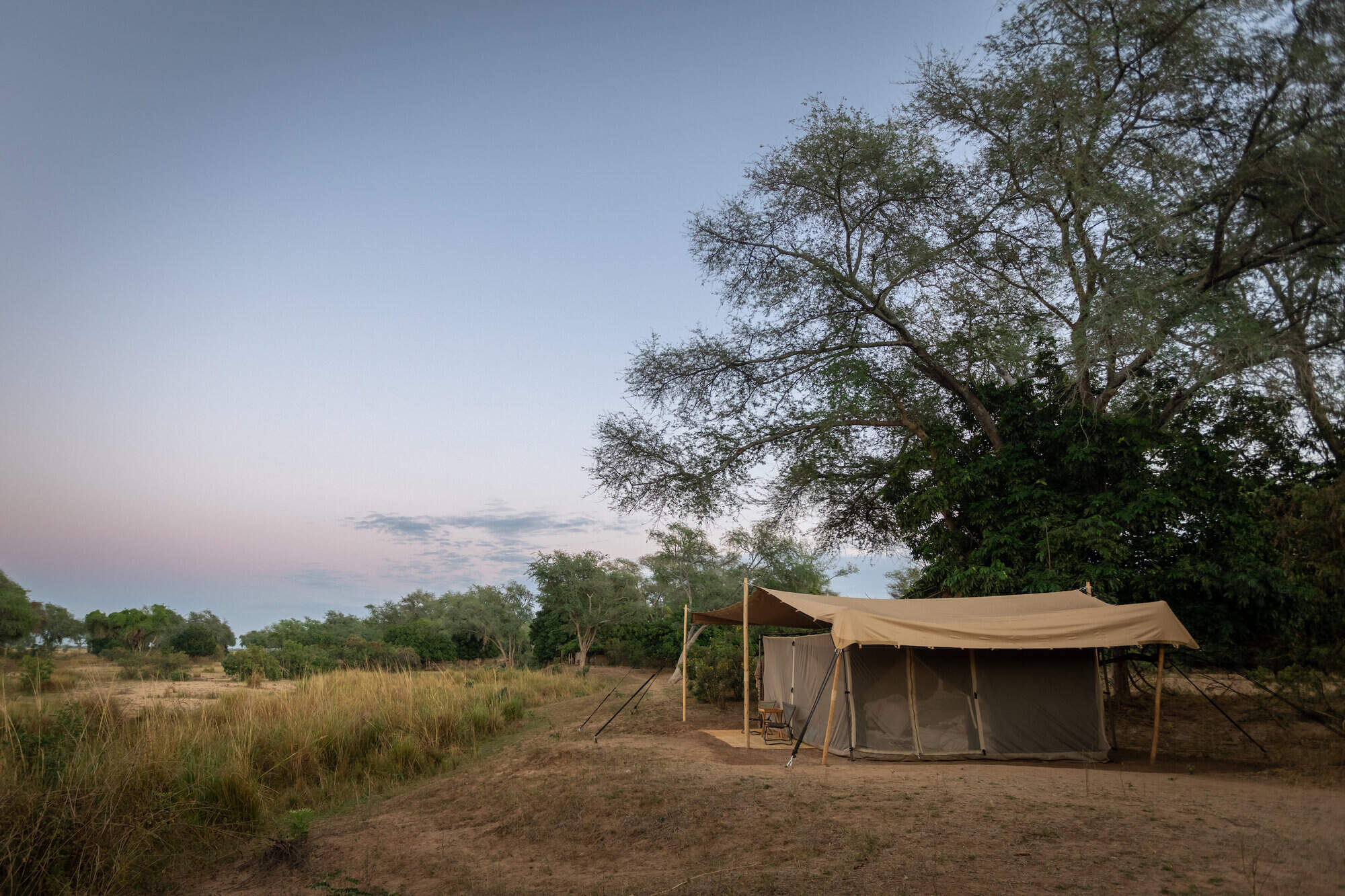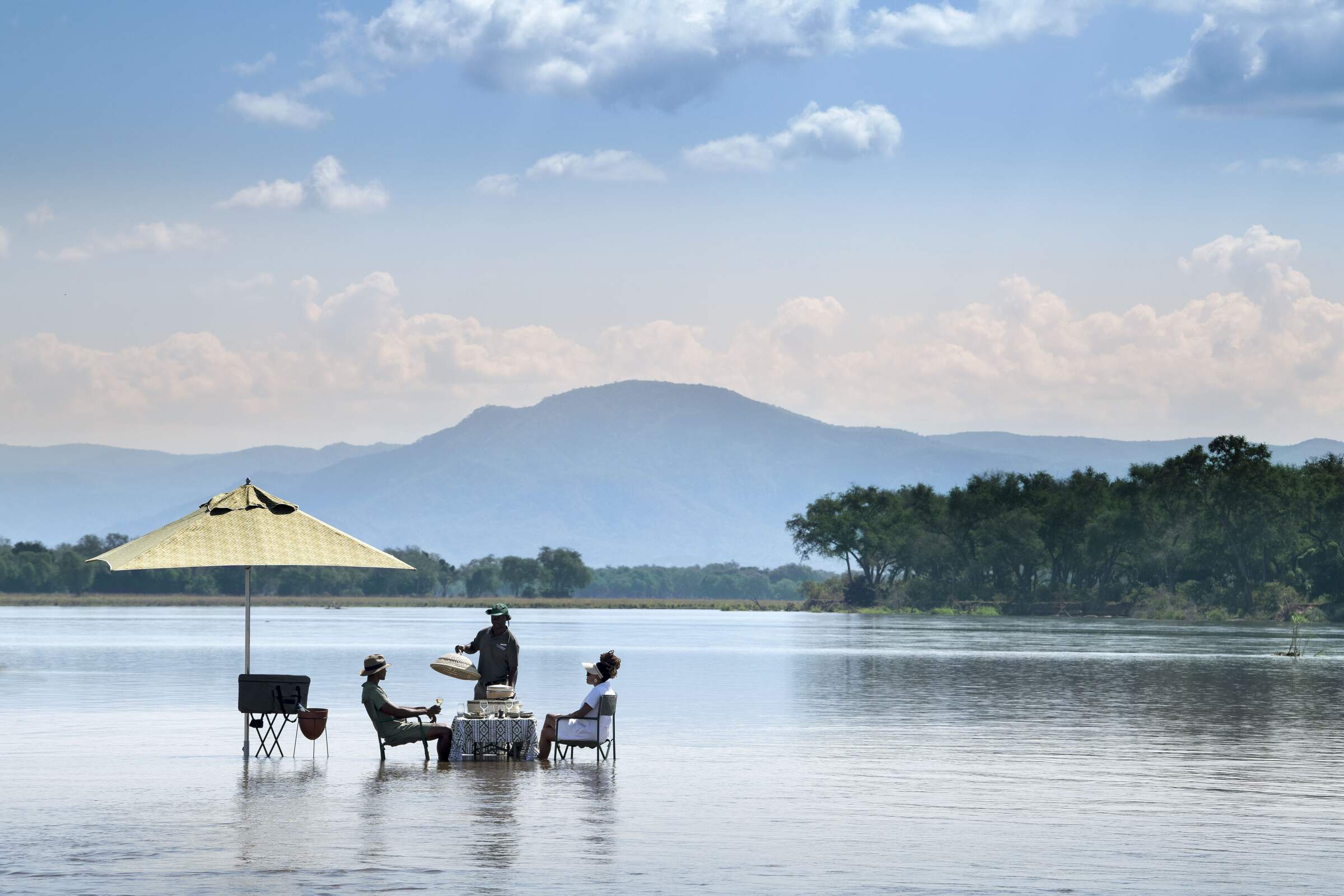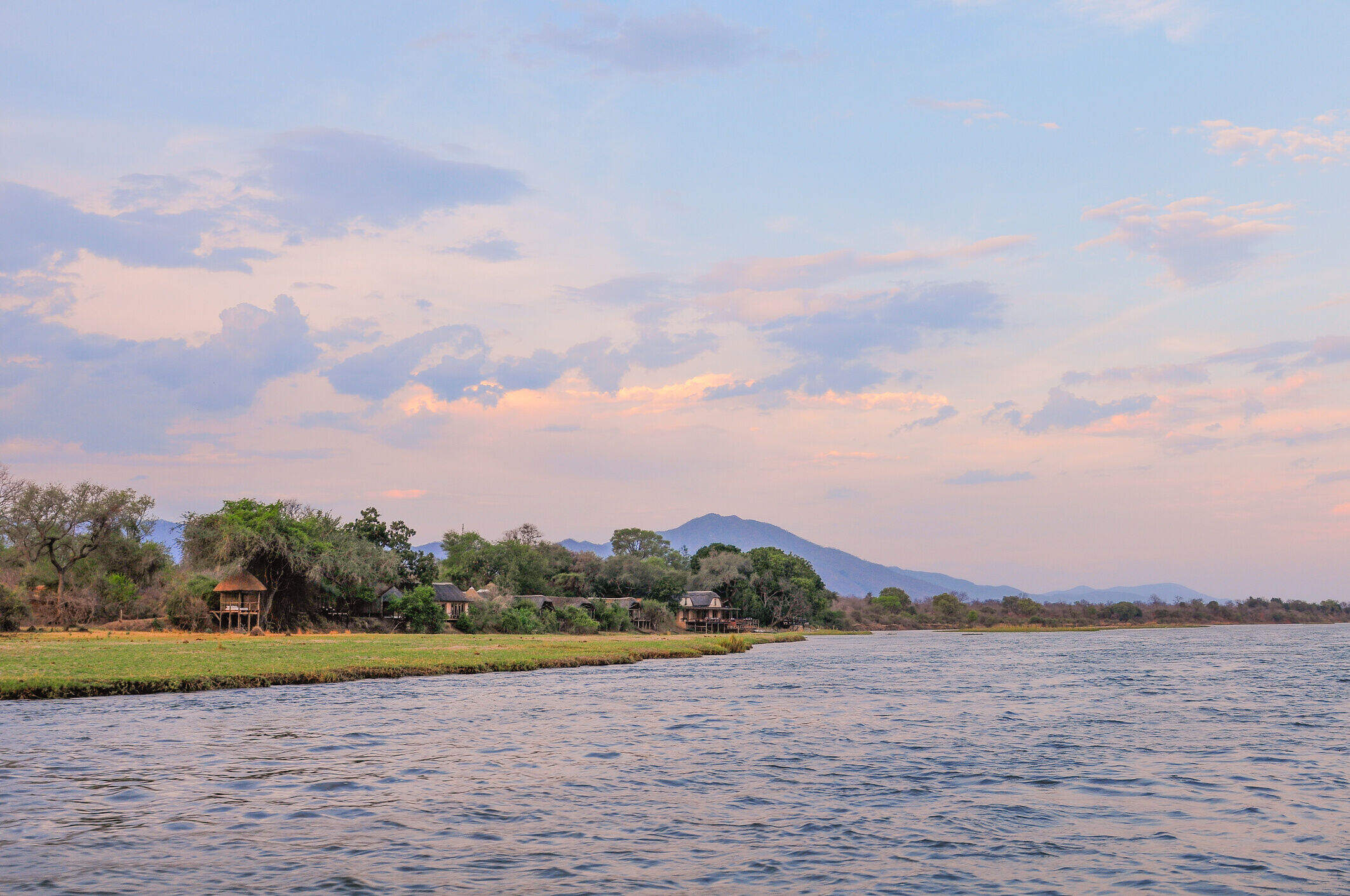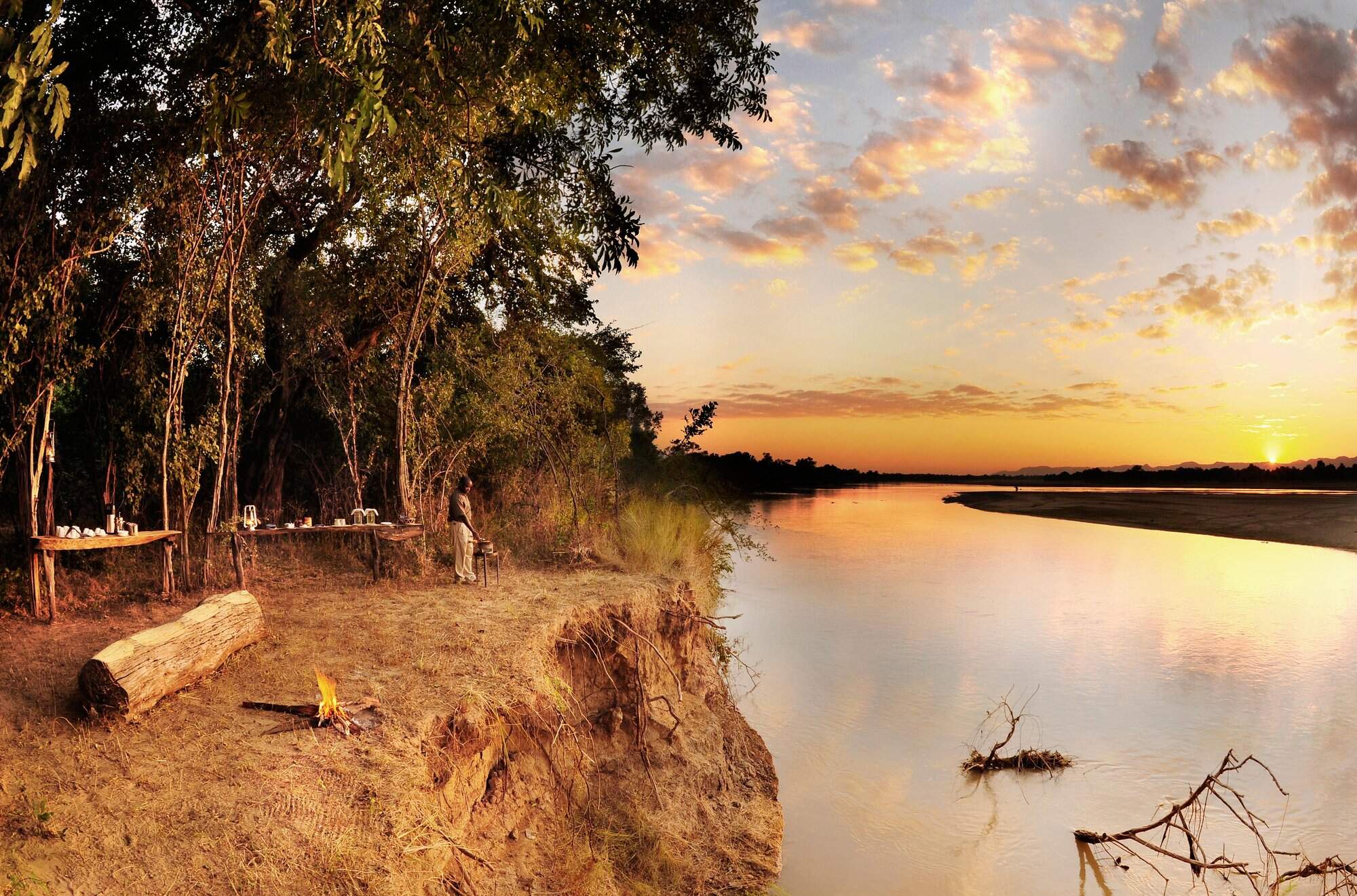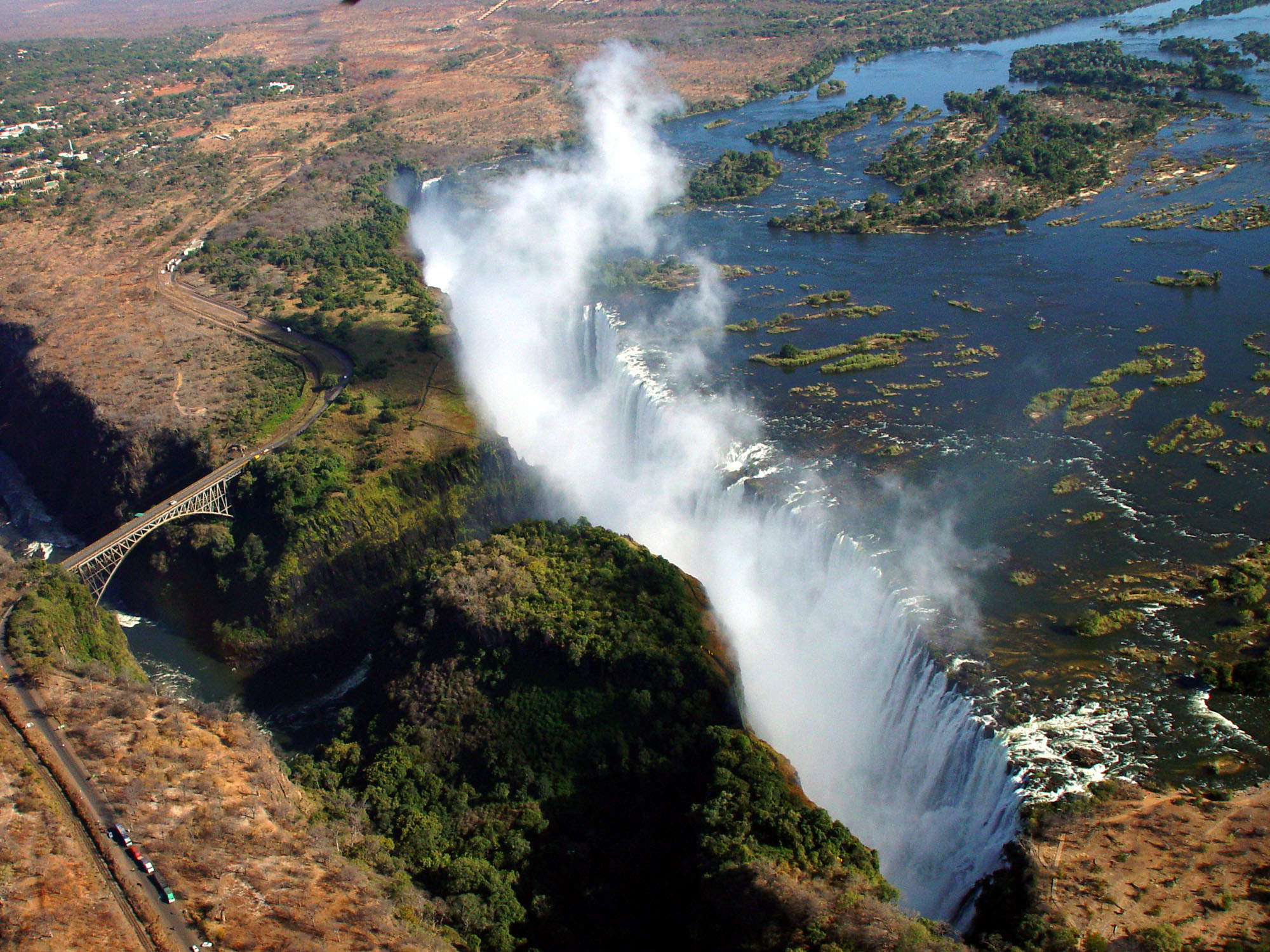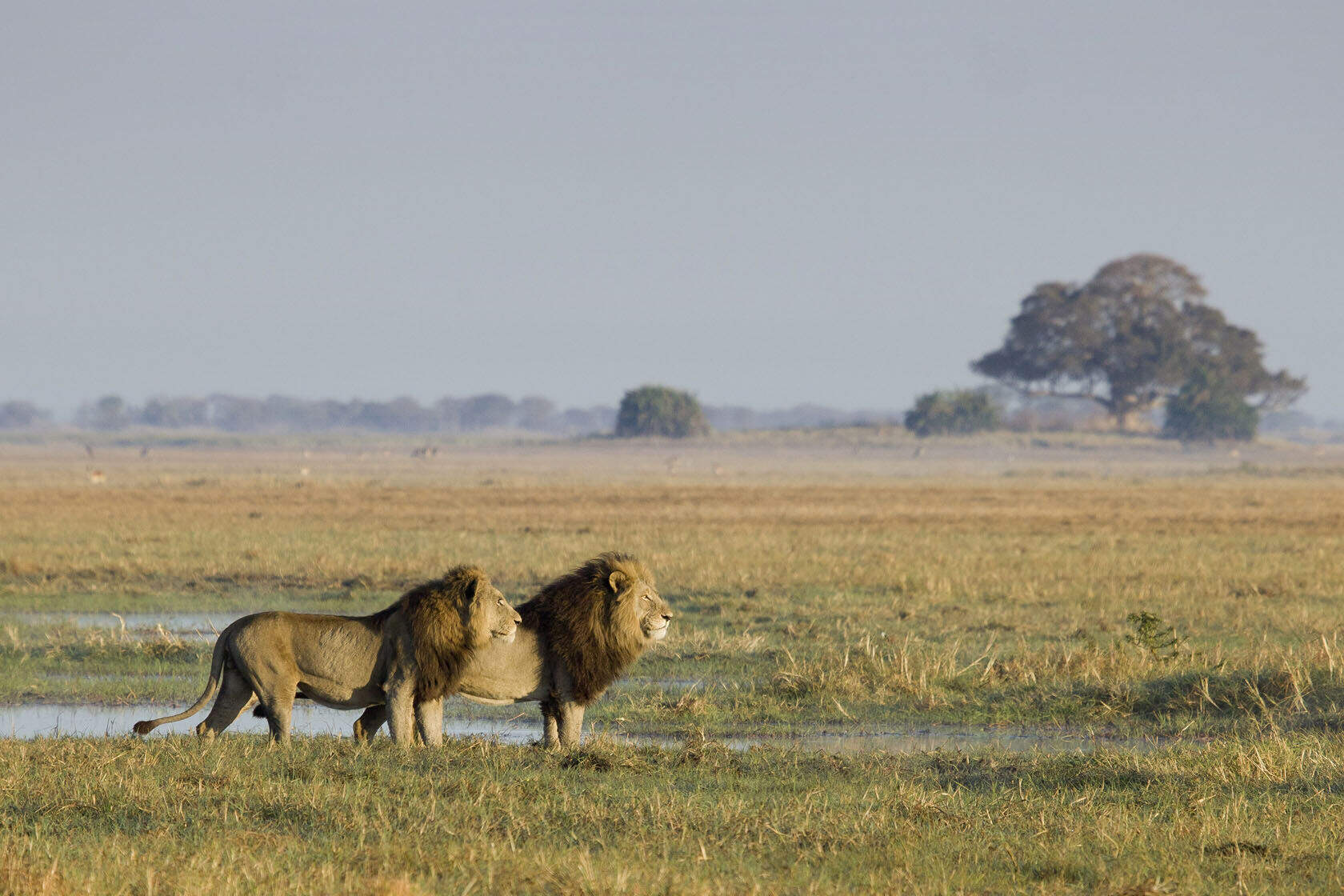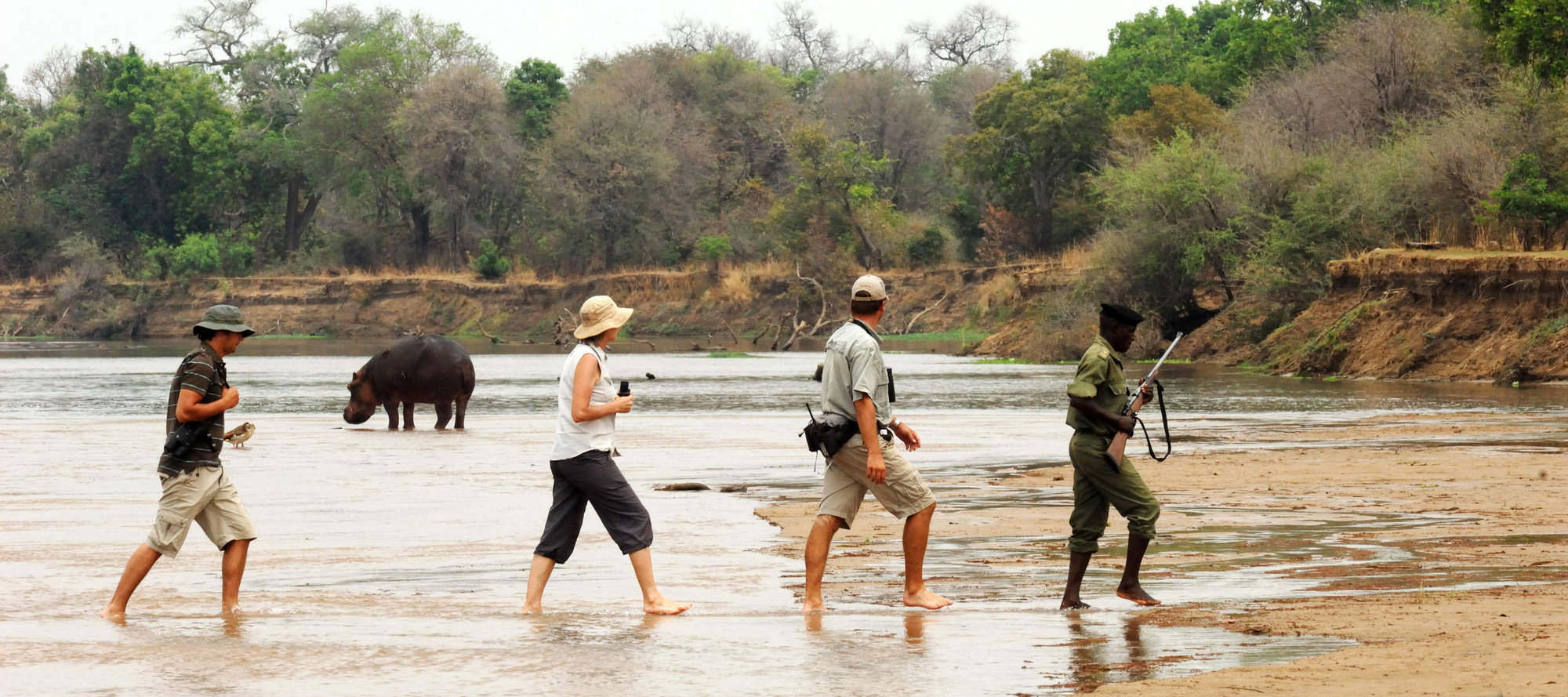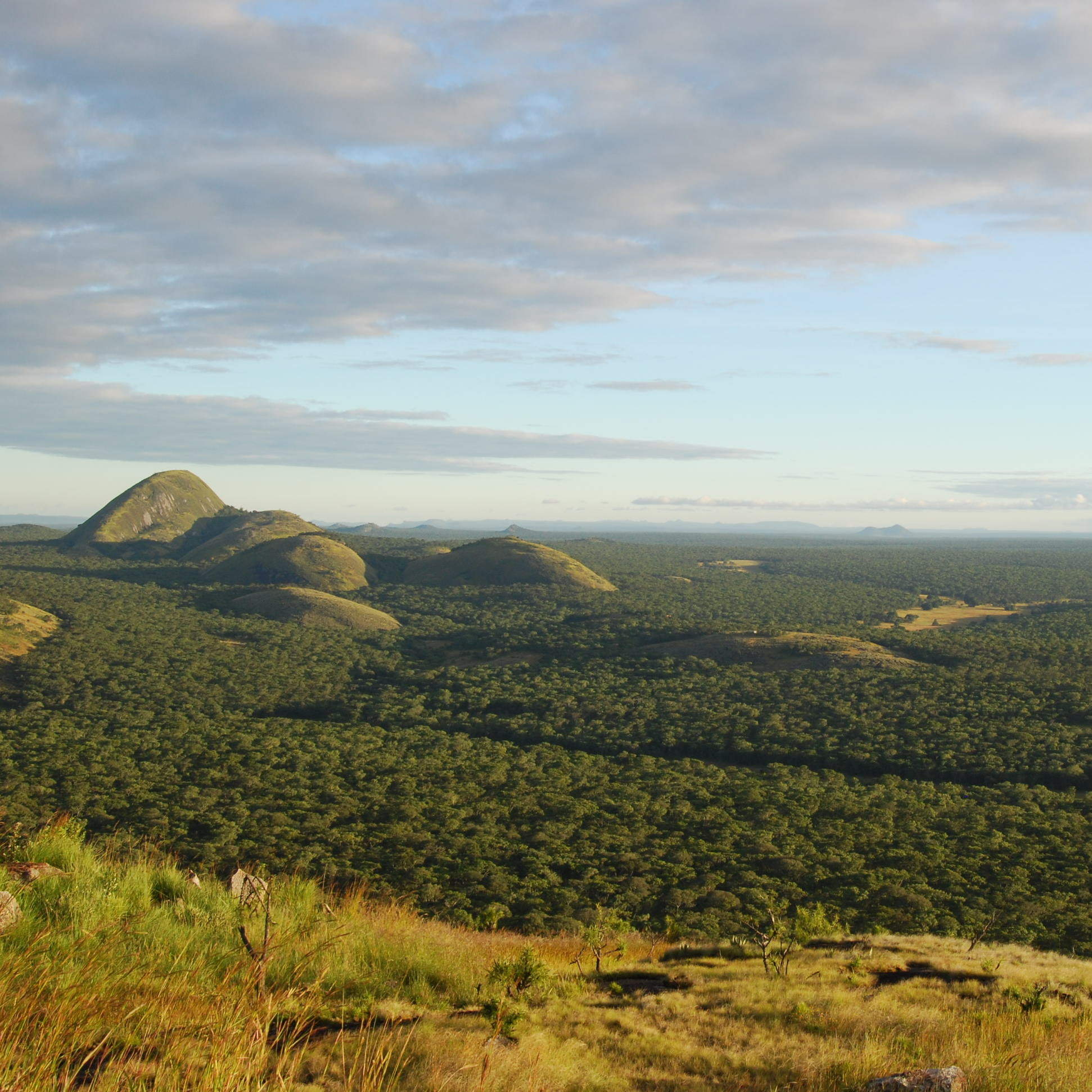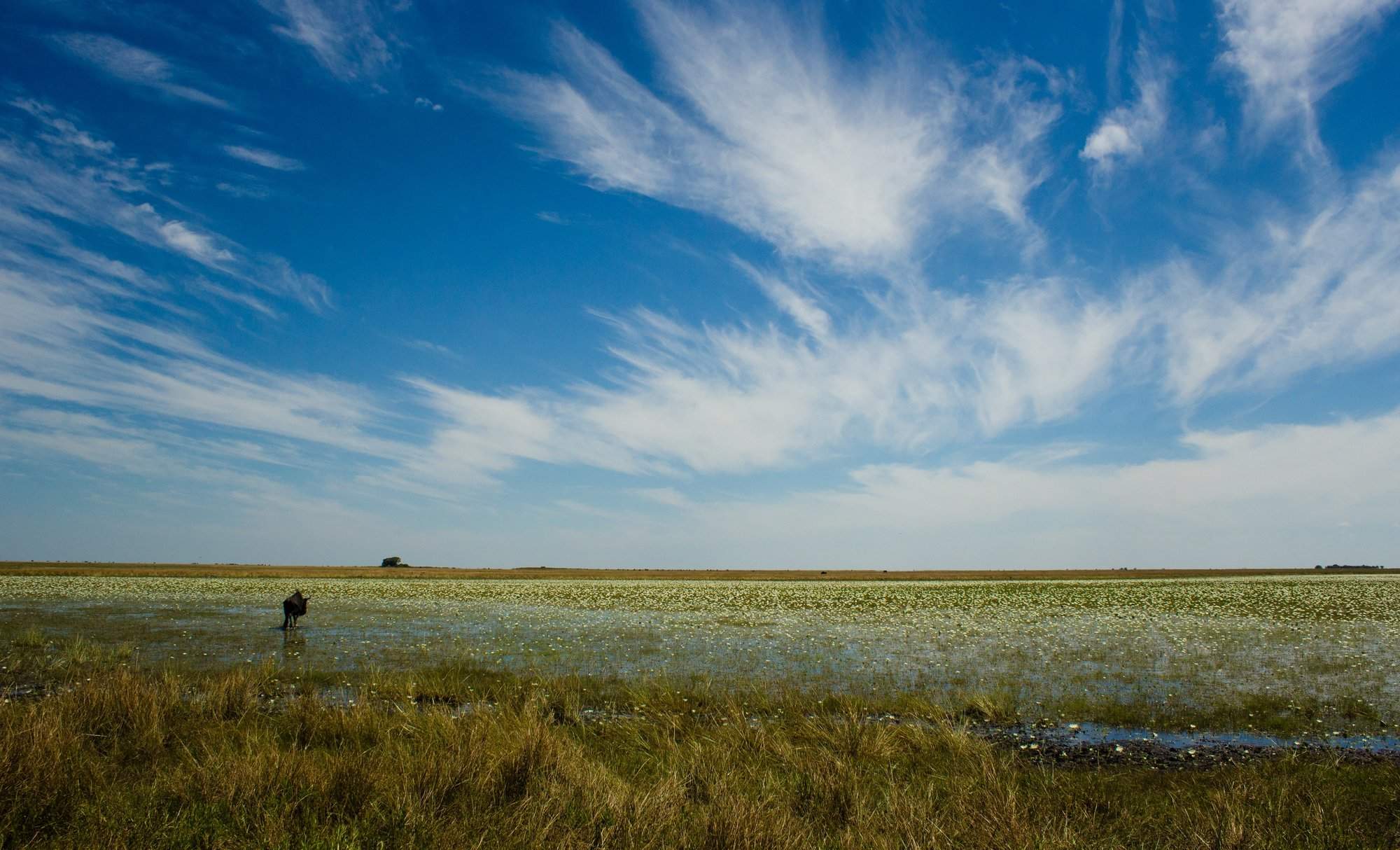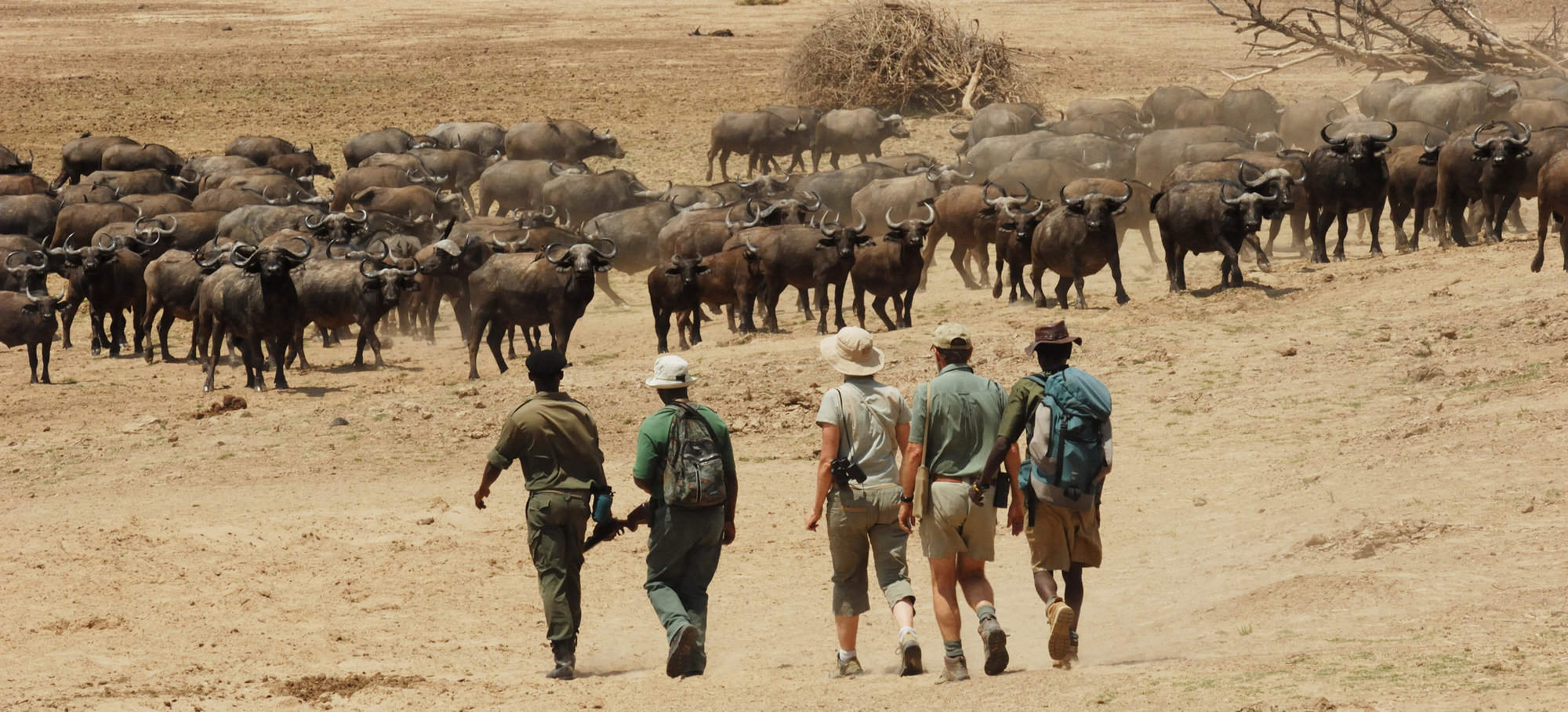Chiawa Camp: Our full report
On the banks of the Zambezi River, Chiawa Camp sits beneath a grove of mahogany trees.
As the first camp in Zambia's wildlife-rich Lower Zambezi National Park, it was opened by the Cumings family in 1989, and is still run by Grant Cumings. Over the years, it has evolved in size and comfort to a high degree of understated luxury.With its beautiful setting, long history and exceptionally high standards, Chiawa is one of our favourite camps in Zambia – especially when combined with its sister camp, Old Mondoro. As with most camps in the Lower Zambezi, it is open only during the drier months, between about mid-April and mid-November.
The camp has eight Meru-style tents and one larger safari suite, perfect for families or honeymooners. Linked to the main areas by sandy pathways, all are en suite and have broadly similar facilities, and all are beautifully furnished in wood and neutral colours, though some differ in terms of layout or outlook. The tents were remodelled in late 2020, keeping their previous locations but realigning them to optimise their views of the animals that wander past on the way to the river, and upgrading them in terms of space and style.
- Six tents (numbers 1–6) overlook the main Zambezi River and are closest to the main area. Each of these tents is raised on a wooden platform, large and sturdy, and is entered by a proper door. Large mesh windows and a sliding mesh door fitted into the canvas wall open out onto a private veranda with comfortable lounge chairs and a coffee table. Inside, they are spacious and open plan, incorporating a bedroom, bathroom and changing area.
High canvas ceilings give the tents a spacious, airy feel. A large walk-in mosquito-net canopy envelops the twin beds, or a double, together with bedside tables and lights, and a ceiling fan above the bed.
To one side, cooled by ceiling and free-standing fans, you'll find a wooden writing desk and two armchairs, while behind the bed is a changing area.
The bathroom, set behind a three-quarter wall, features a rain shower and flush toilet in a separate cubicle, twin sinks set into a wooden counter, and a free-standing claw-foot bath with a view. A private outdoor shower completes the picture. Along with the seating areas, the deck also has a small sunken “wallow”: built-in cushioned seating around a sunken bath, which can be filled with water on request in which to cool off or simply rest your feet. - The remaining two tents (7 and 8) have similar facilities to the rest, but these are a little bigger and with their bathrooms to the side of the open-plan bedroom and lounge area, rather than behind it. Because they catch the afternoon sun, these also have thatched roofs for extra shade. Tent no 7 overlooks both the Zambezi and the Chowe rivers, whilst no 8 overlooks the seasonal Chowe River.
- Chiawa's safari suite or honeymoon suite (though it works just as well for families), is different again. Opened in 2017 beside the Chowe River, it combines an understated but elegant design with a hilltop location towards the far end of the camp, affording it both privacy and views out to the Zambezi. With a thatched roof, canvas walls and folding wooden and gauze doors stretching the width of the suite, it's a spacious, luxurious and comfortable retreat. Although it can be hotter here in the summer months, as this more sheltered location gets little breeze, the amount of wildlife that passes through this section of the camp makes it a worthwhile compromise.
Overlooking the river and running the width of the suite is a wooden deck, where comfy daybeds, chairs and sunloungers sit alongside a private plunge pool and, to one side, an open-air shower. Steps lead down to a firepit and another seating area.
Inside, the suite is decorated in light cream, jade and silver colours, which complement the light-wood furnishings. A large lounge area has sofas, a coffee table and a small reference library, as well as a minibar and tea/coffee station. This space, with a guest cloakroom, can be converted into a second bedroom with two daybeds.
Dominating the bedroom is a huge four-poster bed within a walk-in mosquito net. Bedside tables have stylish reading lamps, and on a practical note there are luggage shelves and storage units, holding a torch, emergency radio, mosquito repellent and a small safe.
In the middle of the suite, between the lounge and bedroom areas, the open-plan bathroom features a free-standing bath (surrounded by candles), twin sinks and a second shower and toilet in separate cubicles. As with all of Chiawa's tents, there are complimentary toiletries, dressing gowns and slippers.
The food at Chiawa is usually excellent. Most meals are taken in the separate dining area, which is open to the front and overlooks the river, but lunch is a movable feast, perhaps under the shade of the trees or on Chiawa's motorised pontoon, and breakfast is set up around the campfire. In the dining room you'll also find a “help yourself” tea and coffee table, which is always stocked with freshly baked biscuits. Dinner is often by candlelight under the stars, and the team at Chiawa will often arrange private dinners away from camp in a section of dry riverbed, illuminated by candles and storm lanterns.
For those hot days on the Zambezi, Chiawa Camp has a large swimming pool, with a shaded area and sunloungers. And if you want to work off that extra cake from afternoon tea, you might also be tempted by the small gym area, with cardio equipment as well as weights and yoga mats! The camp also has a small shop, stocked with good-quality, locally made curios.
In the corner of the camp, Chiawa has an elevated viewing platform, overlooking the confluence of the Chowe and Zambezi rivers, so ideal for watching animals come down for their midday drink. There are also three hides, one just on the edge of the camp, next to the river, and a second sunk into the ground next to a waterhole, allowing an eye-level view of buffalo, warthogs and other thirsty animals.
New to Chiawa in 2023 is their Star Bed tower. Just downstream from the camp, it overlooks the Zambezi and an inlet known as Scout’s Hollow – a popular drinking spot for wildlife. By day, the base of the tower is a third photographic hide with seating for guests, and sandbags and rests for cameras.
By night, however the upper section of the four-metre tower comes into its own for a star-bed experience, with a queen-size bed beneath a black mosquito net, to enhance stargazing opportunities. The tower also has an open-plan bathroom, with a flush toilet, washbasin and bathtub. A red-filtered torch is provided to view any night-time creatures wandering past, and a two-way radio is on hand should you need to contact the Chiawa team.
Chiawa’s Star Drift experience, also new for 2023 and at extra cost, includes a a four-course dinner drifting along the river on the camp’s floating pontoon, followed by sparkling wine served at the Star Bed and a night there, with a continental breakfast served in the morning.
With a team of excellent and enthusiastic guides, Chiawa offers a full range of flexible activities, which include game drives (day and night) in open 4WDs, walking safaris, canoeing and boat trips, and catch-and-release fishing. Do be aware that at certain times of the year, if water levels are unusually low, some of the water-based activities may not be possible. The guides are professional and knowledgeable, and over numerous visits since our first in 1995, most recently in October 2022, we've come to appreciate their willingness to go out of their way to try to fulfill each guest's interests. Do note, however, that given the variety of safari activities, your guide may change depending on your chosen activity.
The game viewing in the Chiawa area has been superb over the years, too – so much so that it's not unusual for camps downriver or from just outside the park boundaries to head this way. On just one evening drive we spotted a variety of wildlife, from lion and leopard, to porcupine and chameleons. Don't expect giraffe or wildebeest, though, as they're not found in this area. Until early 2017, we'd have said that cheetah weren't to be found in the bush surrounding Chiawa either, but a lone male has been spotted several times since.
For the keen birdwatcher, the Lower Zambezi is great for both water and land birds, with nesting carmine bee-eaters quite a spectacle between September and November. Boating, canoeing and walking safaris give a different perspective and, if you're very quiet and cautious, may sometimes allow you to get close to the birds without disturbing them – our sightings have included giant eagle owl, spurwinged geese, kingfishers and an abundance of Goliath herons.
Fishing at Chiawa is guided by experts, from custom-built pontoon boats using fly and conventional tackle (and artificial bait). If you're serious about fishing, though, consider booking a private boat, especially during September and October when fishing is at its best and demand for this activity can be high. Expect a cost of around US$175 per boat for half a day (about four hours) or US$350 for a full day, plus the cost of the park angling permit, US$40. The number of boats is limited to two, so advance booking is advisable.
Chiawa's team is one of the founder members of Conservation Lower Zambezi, a non-governmental organisation which aims to reduce poaching and misuse of resources in Zambia's Lower Zambezi. Chiawa remains particularly active in its support of CLZ, and Expert Africa is also proud to support this worthy charity.
Our view
In many ways, we think Chiawa is one of the best, and best-run, camps in Zambia. The service and food are top-notch, with a team who tend to go out of their way to make everyone feel comfortable – and have consistently left us feeling that nothing was too much trouble. The camp manages to be luxurious, while still feeling homely and welcoming, a balance that can be difficult to get right. A good complement of excellent guides and a flexible attitude towards activities means that guests will usually get to do what they want, more or less when they want. We love it.
Geographics
- Location
- Lower Zambezi National Park, Zambia
- Ideal length of stay
- We recommend a minimum of three nights at Chiawa, although many visitors stay for longer to take advantage of the variety of activities. Chiawa also combines well with its sister camps, Old Mondoro, further east in the Lower Zambezi National Park and Puku Ridge, in the South Luangwa National Park.
- Directions
- Following a short flight of about 40 minutes from Lusaka to one of the airstrips that serve the national park, the transfer to camp is up to an hour's drive through the park, usually by open-topped 4WD. Sometimes the final part of this is by boat, as it's particularly lovely to first approach the camp from the river.
- Accessible by
- Fly-and-Transfer
Food & drink
- Usual board basis
- Full Board & Activities
- Food quality
- Expert Africa team members have visited Chiawa Camp many times, the first in 1995! When we stayed in October 2023, as on previous occasions, the food was very good and the portions very generous. The chefs will happily cater for a variety of dietary requirements.
You'll be woken just before sunrise with a “knock knock”, when tea or coffee will be brought to your tent. Guests meet around the campfire for a light breakfast, which usually consists of toast, muffins, pancakes or pastries, cereal, yoghurt and porridge, along with tea, coffee and fresh fruit juice.
Brunch is served at around 11.00am or 11.30am, once you've had some time to freshen up after your morning activity. Most recently we were treated to one of Chiawa's special lunches on their motorised pontoon, where we tucked into sesame chicken with roasted vegetables, Thai noodles, a selection of salads and homemade bread. The food was delicious, and enjoyed while we watched numerous elephant, hippo and crocodile along the riverbank. Our lunch at the lodge was a very tasty Afrasian-spiced chicken fillet served on stir-fried vegetables with a selection of salads, although we could also have ordered eggs, sausages and bacon. A light lychee sorbet finished our meal.
Afternoon tea, served at about 3.30pm before your afternoon activity, usually involves both a freshly baked cake or cookies and a savoury dish. We enjoyed flatbreads and hummus, then a delicious carrot cake with Amarula icing.
Dinner is usually a four-course meal served under the stars in the main area. We started with a feta and pepper tartlet, followed by butternut squash soup, then a beef fillet with a pepper sauce, served on potato gratin with steamed vegetables, though grilled tilapia with jasmine rice was also on offer. After expressing our delight at the Amarula in the afternoon snack, we were treated to poached pears and camp-made Amarula ice-cream for dessert – delicious! - Dining style
- Group Meals
- Dining locations
- Indoor and Outdoor Dining
- Further dining info, including room service
- No
- Drinks included
- Filtered drinking water, soft drinks, local beers and spirits, and a selection of red, white and sparkling wines are included.
Special interests
- Solo Travel
- Chiawa is never cheap, but it has no single supplement, making it a relatively affordable option for solo travel in Zambia. A combination of communal meals and incredibly friendly staff also means solo travellers shouldn't lack for company.
- See ideas for Solo Travel in Zambia
- Honeymoons
- Chiawa's safari suite is perfect for a Zambia honeymoon. Couples can dine privately in their room or enjoy a romantic meal à deux on the camp’s motorised pontoon. A bathtub big enough for two and shared showers under the stars add to the romance.
- See ideas for Honeymoons in Zambia
- Birdwatching
- Chiawa is a particularly good camp for birdwatching in Zambia: it's great for water and land birds, with favourites including ospreys, eagle owls, kingfishers and carmine bee-eaters. Boating, walks and a wildlife hide give different perspectives, and the camp has expert guides.
- See ideas for Birdwatching in Zambia
- Photography holidays
- Chiawa's open-topped 4WD vehicles are ideal for a photography safari in Zambia, while boating, canoeing and three hides give different perspectives on the wildlife. Then there are the camp’s excellent guides, plus the stunning backdrop scenery of the escarpment behind camp.
- See ideas for Photography holidays in Zambia
- Wildlife safaris
- The Lower Zambezi is one of the best parks for wildlife safaris in Zambia, and Chiawa is one of very few camps inside the park. Top-notch guides add to the understanding and enjoyment of a safari, and red-filtered spotlights on night drives create less disruption to the wildlife.
- See ideas for Wildlife safaris in Zambia
- Luxury
- With uninterrupted views across the Zambezi River, Chiawa’s classic tents are furnished to a high standard. Attention to detail and quality abound: this is a tightly-run ship! Expect food that would grace a top restaurant, and an impressive range of activities delivered by an attentive team.
- See ideas for Luxury in Zambia
Children
- Attitude towards children
- Chiawa welcomes mature and responsible children over the age of eight years.
- Property’s age restrictions
- The minimum age of children visiting is eight years, with a minimum age of 12 for walking and canoeing.
- Special activities & services
- None.
- Equipment
- Chiawa’s safari suite works well for a family, with two day beds that can be set up in the lounge area for children. Alternatively, tents 1 and 2 are relatively close together, and would work for a family with older children – but you'd still need an adult in each tent as nobody is allowed to walk around camp alone after dark.
- Generally recommended for children
- Activities for younger children are limited, so we believe that Chiawa is best suited for responsible and mature children over the age of 12 years.
- Notes
- Chiawa Camp is unfenced, and dangerous wildlife often wanders through. The riverbank is open, and steep in parts, and the swimming pool is unfenced. Children need to be closely supervised by their parents at all times.
Our travellers’ wildlife sightings from Chiawa Camp
Since mid-2018, many of our travellers who stayed at Chiawa Camp have kindly recorded their wildlife sightings and shared them with us. The results are below. Click an animal to see more, and here to see more on our methodology.

100% success

100% success

97% success

87% success

87% success

82% success

56% success

16% success

12% success

5% success

4% success

0% success

0% success
Communications
- Power supply notes
- There are plug points and USB ports in the tents for charging batteries, iPads, phones etc. A separate plug socket allows for limited use of a (provided) hairdryer between 2.00pm and 6.00pm, when the generator is running.
- Communications
- There is no direct phone line – although the camp does have satellite communications for emergencies. Cellphone reception is very intermittent and not reliable. WiFi is available, but is very slow and is restricted to guest tents.
- TV & radio
- No
- Water supply
- Other
- Water supply notes
- Water is pumped from the Zambezi River and is filtered. Showers and bathtubs are plumbed in, with hot and cold running water, and there are flushing toilets.
Sustainability
Conservation Lower Zambezi
Conservation Lower Zambezi (CLZ) was established in 1995 as a non-governmental organisation that specialises in promoting the protection of fauna and flora in the Lower Zambezi National Park and in the surrounding game management areas (GMAs). Starting with just one employee, CLZ initially provided logistical support to Zambia's government wildlife scouts. They began to expand in 1999 after the Danish Ambassador, Mr Mads Sandau, decided to help fund the organisation. Since then CLZ has become one of Africa's foremost conservation organisations.
CLZ now assists the Zambia Wildlife Authority (ZAWA), which is responsible for the management and administration of the country's national parks and GMAs. Through this support, which includes transport (road and aerial support), patrol rations, radio communications, specialised training, and tranquilising and treating wild animals injured by poachers, CLZ has helped to save numerous animals, in particular wild dog, lion and elephant.
In 2002 the Royal Danish Embassy offered to support a new Environmental Education Centre, which was opened in 2005. The centre aims to raise the level of environmental interest within the surrounding community with a view to instilling an appreciation of the long-term benefits of conservation. According to the latest figures, more than 250 teachers, pupils and community members have visited the centre, while their Land Cruiser, which is mounted with TV and video, has reached almost 6,000 school pupils.
Expert Africa is supporting the CLZ's work on an ongoing basis, with a view to regular and consistent donations for things that they really need. Expert Africa's most recent donation was the contribution to CLZ of two high-quality digital cameras (along with memory cards). One of the cameras will be used to record poaching activities, such as the state of poached carcasses found and evidence of other illegal activities such as meat-drying racks and wire snares. The second camera will be used by CLZ's environmental education programme to document visits to remote schools promoting conservation awareness in local communities.
Expert Africa has also sponsored an “air to ground” radio for CLZ's anti-poaching surveillance aircraft, 9J-CLZ. This means that the pilot will now be able to communicate easily with anti-poaching patrol teams on the ground when he/she is searching for poaching camps from the skies. This is a vital tool in the fight against illegal killing of precious wildlife in the Lower Zambezi.
See more great sustainability projects in Zambia
Health & safety
- Malarial protection recommended
- Yes
- Medical care
- The camp managers and guides are trained in first aid. The closest doctor is in Chiawa village, 1½ hours away by boat. In case of a medical emergency, guests would be evacuated by air to Lusaka and then potentially to Johannesburg.
- Dangerous animals
- High Risk
- Security measures
- Chiawa is an unfenced camp, on the edge of the Zambezi River. Wildlife, including elephant, hippo and leopard are known to roam through the camp on a regular basis. Guests are escorted to their tents after dark and a safety radio is provided in each tent to raise the alarm in case of emergency.
- Fire safety
- There are fire buckets at all the tents and behind all the thatched buildings. A fire blanket and fire extinguishers are also on hand in the kitchen.
Activities
4WD Safari
Birdwatching
Boat trip
Canoeing
Fishing
Guided walking safari
Night drive
Sleeping under the stars
Extras
- Disabled access
- On Request
- Laundry facilities
- A full laundry service is included. Washing powder is provided in each bathroom, as is a small washing line if you prefer to wash any items yourself.
- Money
- There is a small safe in each tent. The camp does not offer any currency-exchange facilities.
- Accepted payment on location
- Any extras, such as purchases from the shop or special fishing trips, need to be settled in cash, preferably in Zambian kwacha. However, small amounts of US dollars are usually acceptable, although notes dated 2006 or later are preferred.
Other lodges in Lower Zambezi National Park
Alternative places to stay in this same area.

